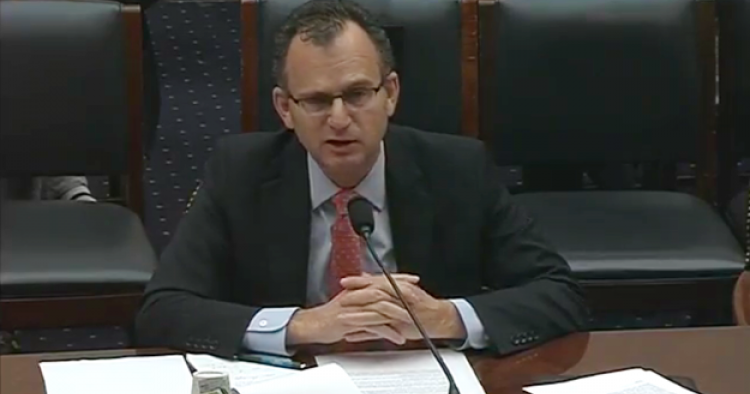The following testimony was delivered by Paul Salem to the House Foreign Affairs Subcommittee on Middle East and North Africa on November 29, 2017. For more information and video of this hearing click here.
“Chairwoman Ros-Lehtinen, Ranking Member Deutch, distinguished members of the Subcommittee, thank you for the opportunity to testify.
Lebanon occupies a strategic position on the eastern Mediterranean, and as Deputy Assistant Secretary of State Michael Ratney said in this venue last month, “a stable, pluralist, prosperous Lebanon is in the US national interest.”
Lebanon has been an effective ally in the war on ISIS and al-Qaeda, defeating and expelling both. The country hosts over one million Syrian refugees; it maintains a society of pluralism, openness and democracy in a troubled region; and the Army along with UN-multinational-forces have kept the peace across the critical Lebanon-Israel border for the past 11 years.
But Lebanon has also been a contested space between a pro-Iranian pro-Assad coalition—that now includes Russia--and a pro-Arab pro-Western coalition.
If allies give up on Lebanon, it will fall fully into Iran, Syria, and Russia’s sway;
And if tensions are pushed too high, we risk having another collapsed state in a region which already has too many.
It is a long term commitment, not one that can be won overnight, nor one that should be abandoned in frustration.
Many parties and leaders in Lebanon, including Saad Hariri, have been struggling in this contest for many years. Saad’s father, Rafik, was assassinated in 2005, along with numerous others, for doing just that. But they have not, and will not give up. And they deserve support and encouragement for struggling to rebuild national sovereignty under very difficult conditions.
Both coalitions share power in parliament and government.
Iran and Syria have built a massive armed non state actor in Hezbollah; but the Lebanese have also maintained an inclusive democratic nation state, and with American help built an effective national army and internal security force.
Although successive governments have insisted on a policy of non-interference in regional affairs, Hezbollah has violated that principle since 2012 and become militarily engaged in Syria, as well as in Iraq and Yemen.
Hezbollah’s involvement in Yemen is what mainly sparked the latest crisis. Particularly its apparent assistance in delivering and helping militants launch missiles into Saudi Arabia, including the capital Riyadh. Obviously this is completely unacceptable to Saudi Arabia. And it is fully understandable that Riyadh could not countenance that an ally of theirs would head a government that includes a party that is lobbing missiles on their own capital.
Hariri’s resignation was perhaps a necessary signal—a ‘positive shock’ as he himself put it—that the Lebanese government could not continue with business as usual.
Hariri is now back in Lebanon. He has put his resignation on hold, until he receives guarantees that Hezbollah will cease its activities against “friendly Arab governments”.
If Hezbollah ceases its involvement in Yemen, this latest Lebanon crisis might subside. Signs from Beirut and some regional capitals are that such a de-escalation might be in the works.
The challenge of Hezbollah is a long term one. There are already signs that it might pull back from its limited engagements in Yemen and Iraq; but its sizable presence in Syria is part of the challenge of dealing with the tens of thousands of Iranian proxies there. Making sure all proxy forces leave Syria as part of a final settlement should be a primary objective for the US and other regional partners in the next phase of contest and diplomacy over Syria.
In Lebanon, Hezbollah has both a political and military presence. Politically it is a principal elected representative of the Shiite population. Militarily it has been armed by Iran to go head-to-head with Israel. An attempt to fight Hezbollah internally would only lead to a devastating and losing civil war. And another Hezbollah-Israel war would cause much harm in both countries, and Iran would be around to re-arm Hezbollah immediately afterward.
In the short term the goals should be to withdraw Hezbollah from regional conflict zones and maintain peace across the Lebanon-Israel border. The long term resolution of the challenge of Hezbollah will depend on wider regional developments such as a reckoning, militarily or diplomatically, with Iran, or a breakthrough in Israeli-Palestinian and Israeli-Arab peace.
I address a number of other issues in my written testimony, but I thank you for your attention and look forward to your comments and questions.
The Middle East Institute (MEI) is an independent, non-partisan, non-for-profit, educational organization. It does not engage in advocacy and its scholars’ opinions are their own. MEI welcomes financial donations, but retains sole editorial control over its work and its publications reflect only the authors’ views. For a listing of MEI donors, please click here.












